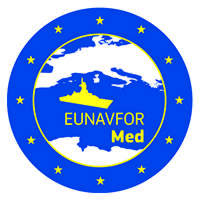Following the political guidance provided by the defence and foreign affairs ministers at their informal meetings on 3 and 5 September, EU Ambassadors within the Political and Security Committee agreed to start the first step of the second phase of the operation as of 7 October 2015 and approved the corresponding rules of engagement.
The EU naval operation against human smugglers in the Mediterranean will be able to board, search, seize and divert vessels suspected of being used for human smuggling or trafficking on the high seas, in line with international law.
The Political and Security Committee also agreed that EU NAVFOR Med should be renamed "Sophia" after the name given to the baby born on the ship of the operation which rescued her mother on 22 August 2015 off the coast of Libya.
The new name of the operation will be formally adopted by the Council at the earliest opportunity.
The decision by the Political and Security Committee to launch the first step of phase 2 of the operation follows an assessment by the Council on 14 September that the conditions to move to this stage have been met.
The Operation Commander Rear Admiral Credendino has judged the transition possible as member states provided the assets needed for this more active phase in the force generation conference of 16 September 2015.
The operation is aimed at disrupting the business model of human smuggling and trafficking networks in the Mediterranean and to prevent the further loss of life at sea. It is part of a wider EU comprehensive approach to migration, tackling both the symptoms and root causes such as conflict, poverty, climate change and persecution.

